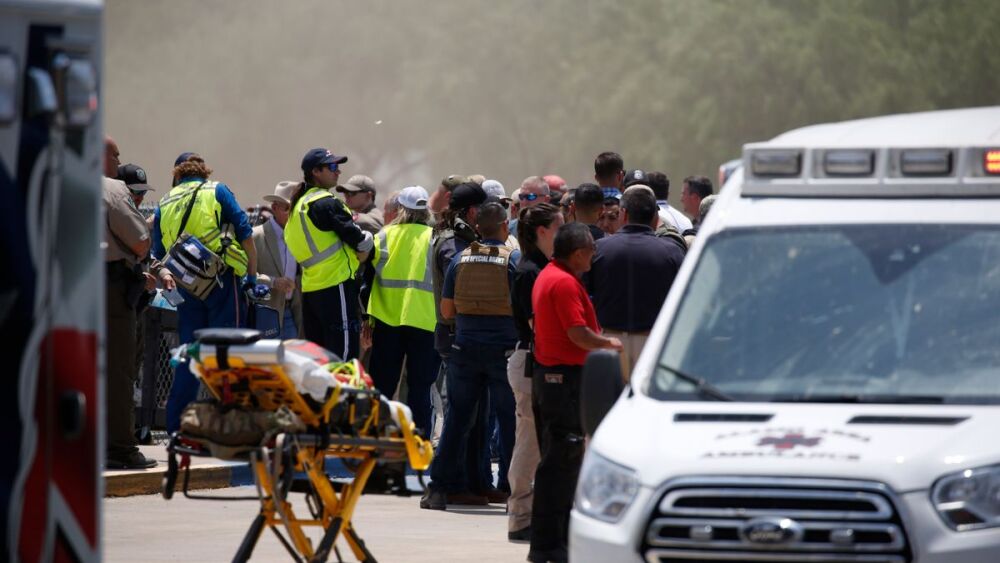“Why did he kill them?” My daughter was wide-eyed, and her face was etched with fear.
We were discussing the recent shooting at Robb Elementary School in Uvalde, Texas, where 19 children and two teachers were killed on May 24. She had gone into the kitchen for a snack, and saw the headline displayed on our kitchen Alexa: “19 children killed in Texas school shooting.”
With as little detail as possible, I explained what happened, trying to keep my voice from shaking. At one point, I mentioned that’s why they practice intruder drills in her classroom. This shocked her, as she was under the impression she had been “hiding” from people who wanted to kidnap her.
“They want to kill us?” she asked. She seemed to lose herself in that thought, as if pondering what would make someone want to murder her. She couldn’t fathom the scenario; she kept asking, “Why? But, mom, why?”
I was losing the internal battle to keep my composure during this horrifying discussion that will be forever etched in my brain, because how do you answer that question? I can’t. The parents of Uvalde can’t. The parents of Sandy Hook can’t. The parents of Parkland can’t.
So, instead of answering, I gave her hope.
In the immortal words of Mr. Fred Rogers, I told my daughter – who is the same age as many of the Uvalde victims – to “look for the helpers,” the first responders who descend on emergency scenes with little fanfare.
I told her about the extensive training paramedics go through, and how they’re equipped to rescue the injured.
I told her I had spoken to a provider who served as the lead medic during a violent attack on an outdoor music festival in Las Vegas, who relayed to me the fervor with which he worked to help as many victims as he could.
I told her about the planning and tactical efforts by police, and how they are trained to run towards the danger, for whomever may need them; for her.
We also talked about the mental health professionals who are tirelessly helping survivors work through their grief, as well as the advocates – many of whom are shooting survivors themselves – working to prevent more children from being gunned down at their desk.
It helped – she smiled a sad smile and said, “I’m glad there are good people who will make things better.”
I can’t guarantee she will be safe in her classroom, as painful as that is to admit, or from the knowledge that these horrific scenarios are a weekly occurrence. But I can empower her to look for the uniform – for the helpers – and hope it brings her comfort that help is on the way.
Read more:
Child death calls: How to talk to your family and support your mental health
It is important that you process the loss and what you experienced with your support network














